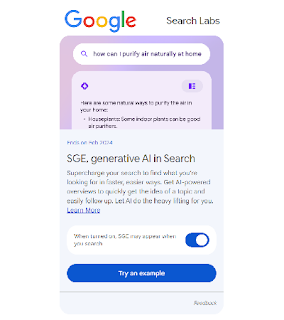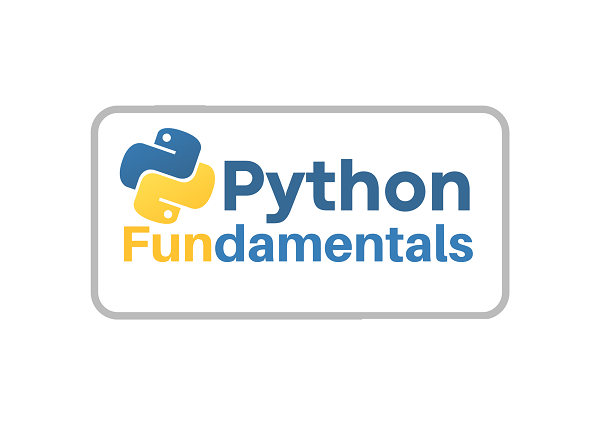Exploring Non-Tech Roles in AI: Opportunities and Requirements
Are you interested in exploring opportunities in Artificial Intelligence but don't have a technical background?
Our latest in-depth article, "Exploring Non-Tech Roles in AI: Opportunities and Requirements," sheds light on the opportunities available for non-technical professionals in the field of Artificial Intelligence. It highlights five non-tech roles in AI, their importance, required skills, job outlook, and salary potential. These roles include Data Annotation Specialist, AI Trainer, Ethical AI Manager, Business Development Manager for AI Solutions, and AI Copywriter. The article also provides tips and available resources for preparing for non-tech roles in AI and discusses the market trends and predictions for the future of these roles.
Artificial intelligence (AI) is no longer a futuristic concept but has become a reality that has changed the job market in many ways. While it is common knowledge that AI has created numerous job opportunities for tech-savvy individuals, the rise of AI has also opened up a variety of roles for non-techies as well. In this article, we will discuss five non-tech roles in AI that have emerged as a result of the technology's growth.
AI Overview and Market Trends
Artificial intelligence (AI) is a rapidly growing field that has transformed the way we live and work. AI is the development of computer systems that can perform tasks that normally require human intelligence, such as visual perception, speech recognition, decision-making, and language translation.
AI has found applications in various fields such as healthcare, finance, marketing, manufacturing, and transportation. Some of the most common AI applications include image recognition, natural language processing, predictive analytics, and machine learning.
The growth of AI has brought about significant changes in the job market. While some fear that AI will replace human workers, the reality is that AI is creating new job opportunities across various industries.
Market trends show that AI is becoming increasingly popular, with more and more companies investing in AI technology.
Predictions for the future of AI are positive, with experts believing that AI will continue to grow and evolve. As AI technology advances, it will likely become more integrated into our daily lives, creating new opportunities for non-techies to enter the field.
In the next sections, we will explore some of the non-tech roles in AI that are becoming increasingly popular and offer great job opportunities for those looking to enter the field.
1. Data Annotation Specialist: A Non-Tech Role in AI
As the demand for artificial intelligence (AI) continues to grow, so do the opportunities for non-technical professionals to work in this field. One such role is that of a data annotation specialist, which is a critical component of the AI development process.
What is a Data Annotation Specialist?
A data annotation specialist is responsible for labeling and organizing data that is used to train machine learning algorithms. Essentially, they are the ones who create the labeled data sets that machine learning models use to learn and make predictions.
Why is Data Annotation Important in AI?
The accuracy and effectiveness of an AI model is directly related to the quality of the labeled data set it is trained on. Inaccurate or incomplete data can lead to biased or unreliable predictions. As a result, data annotation is a crucial step in the AI development process.
Skills and Qualifications Required for a Data Annotation Specialist
While a technical background is not necessarily required for this role, there are several key skills and qualifications that are important for success as a data annotation specialist:
Attention to detail: The ability to accurately label data and maintain consistency is essential.
Analytical thinking: The ability to interpret data and identify patterns and anomalies is important in identifying potential issues or inaccuracies in the labeled data set.
Communication skills: The ability to effectively communicate with other members of the AI development team is important in ensuring that the labeled data set meets the needs of the model being trained.
Familiarity with data management tools: Experience with tools and software used for data annotation, such as Amazon Mechanical Turk or Labelbox, is often preferred.
Job Outlook and Salary Potential
As the demand for AI continues to grow, the need for data annotation specialists is expected to increase as well. The average salary for a data annotation specialist is around $53,000 per year, with some professionals earning upwards of $70,000 per year.
For non-technical professionals interested in working in the AI industry, a role as a data annotation specialist provides a promising opportunity. With the right skills and qualifications, a career in data annotation can be both rewarding and financially lucrative.
2. AI Trainer: A Non-Tech Role in AI
As the use of AI continues to grow, so does the need for AI trainers. These professionals are responsible for training machine learning models to recognize and interpret data accurately.
Role and Importance:
AI trainers play a crucial role in ensuring the accuracy and effectiveness of AI systems. They work closely with data scientists and engineers to create high-quality training data sets that will enable machine learning models to perform their intended tasks with precision. AI trainers also monitor the performance of these models and continuously update them to improve accuracy and minimize errors.
Skills and Qualifications:
To become an AI trainer, one must have a strong understanding of machine learning concepts, programming languages such as Python, and experience with data management and analysis tools. A bachelor's degree in computer science, engineering, or a related field is typically required, along with relevant work experience in machine learning or data analysis.
Job Outlook and Salary Potential:
The demand for AI trainers is expected to grow significantly in the coming years, with an estimated 20% increase in job opportunities. The average salary for an AI trainer is around $86,000 per year, with experienced professionals earning upwards of $130,000 per year.
3. Ethical AI Manager: A Non-Tech Role in AI
As AI becomes more pervasive in society, the need for ethical AI practices becomes increasingly important. The role of an ethical AI manager is to ensure that AI systems and products are developed and deployed in a way that aligns with ethical principles and values.
Explanation of the role and its importance:
An ethical AI manager is responsible for creating and implementing policies and procedures that promote ethical AI practices. They work with development teams to identify potential ethical issues and ensure that AI systems and products are designed to avoid bias and discrimination. Ethical AI managers also collaborate with legal and regulatory teams to ensure that AI products comply with relevant laws and regulations.
The importance of the ethical AI manager role cannot be overstated. As AI becomes more prevalent, there is a growing risk that AI systems and products will perpetuate existing biases and discrimination. An ethical AI manager can help to mitigate these risks and ensure that AI is used in a way that benefits society as a whole.
Required skills and qualifications:
To be successful as an ethical AI manager, individuals should have a strong understanding of ethical principles and values, as well as knowledge of AI technologies and applications. They should also have strong communication and collaboration skills, as the role requires working closely with development teams, legal teams, and regulatory bodies.
A bachelor's or master's degree in computer science, ethics, or a related field may be required for this role. Relevant certifications or training in AI ethics may also be beneficial.
Job outlook and salary potential:
The job outlook for ethical AI managers is strong, as companies increasingly recognize the importance of ethical AI practices. The average salary for an ethical AI manager is around $106,000 per year, with salaries ranging from $70,000 to $150,000 depending on experience and location.
Overall, the role of an ethical AI manager is critical for ensuring that AI is developed and deployed in a way that aligns with ethical principles and values. As AI continues to shape our world, the demand for ethical AI professionals is likely to increase.
4. Business Development Manager for AI Solutions: A Non-Tech Role in AI
As AI technology continues to grow and develop, the need for individuals who can bridge the gap between technical expertise and business strategy becomes increasingly important. Business Development Managers for AI Solutions play a crucial role in identifying and pursuing opportunities to integrate AI solutions into various industries and organizations.
Explanation of the role and its importance:
A Business Development Manager for AI Solutions is responsible for identifying potential clients and partnerships, developing strategies for integrating AI solutions into their businesses, and negotiating contracts and agreements. They work closely with technical teams to understand the capabilities of AI technology and communicate these capabilities to potential clients in a way that is understandable and compelling.
The importance of this role lies in its ability to bridge the gap between technical expertise and business strategy. Business Development Managers for AI Solutions understand the potential of AI technology and can identify opportunities for its integration into various industries and organizations. They are able to communicate the benefits of AI solutions to non-technical stakeholders, such as executives and decision-makers, and can help drive the adoption of AI technology.
Required skills and qualifications:
To be successful in this role, individuals should possess strong business acumen, excellent communication and negotiation skills, and a solid understanding of AI technology and its potential applications. A background in business development, sales, or marketing is often preferred, as well as experience in the technology industry or with AI solutions.
Job outlook and salary potential:
The job outlook for Business Development Managers for AI Solutions is strong, as the demand for AI integration continues to grow. The average salary for this role is around $95,000 per year, with the potential for significant bonuses and commissions based on performance. As AI technology becomes increasingly integral to various industries, the demand for skilled Business Development Managers for AI Solutions is expected to continue to grow.
5. AI Copywriter
Artificial Intelligence is changing the game when it comes to content creation. As businesses are moving towards digitalization, they need to create content that is engaging and informative. However, creating high-quality content can be a time-consuming process. This is where AI copywriters come in.
Explanation of the role and its importance:
An AI Copywriter uses machine learning algorithms to create engaging and informative content. They help businesses to save time and reduce the cost of content creation. AI copywriters can produce content for various channels like websites, social media, email marketing, and even advertisements.
AI Copywriters can generate headlines, articles, and even product descriptions. They can also customize content based on the target audience. AI Copywriters can analyze data to understand the customer's preferences and create content that resonates with them.
Required skills and qualifications:
To become an AI Copywriter, you need to have strong writing skills, an understanding of SEO, and experience with content management systems. You should also have experience working with natural language generation tools and a solid understanding of how to use machine learning algorithms to generate content. A background in journalism, marketing, or advertising can be an advantage.
Job outlook and salary potential:
The demand for AI Copywriters is growing as more businesses are investing in AI technologies. The average salary for an AI Copywriter can range from $50,000 to $100,000 per year depending on their experience and qualifications. As AI technology continues to improve, AI Copywriters will have even more opportunities to create high-quality content at a faster rate.
How to Prepare for Non-Tech Roles in AI
While a background in technology can be helpful for non-tech roles in AI, it is not always necessary. Many of the skills needed for these positions can be learned through training and education. Here are some essential skills and knowledge required for non-tech roles in AI:
Understanding of AI and its applications: Non-tech roles inAI require a solid understanding of what AI is and how it can be applied to various industries. It is essential to stay updated with the latest developments in the field.
Communication skills: Many non-tech roles in AI require effective communication skills to bridge the gap between technical and non-technical teams. The ability to clearly explain technical concepts to non-technical stakeholders is crucial.
Critical thinking and problem-solving skills: Non-tech roles in AI often involve finding solutions to complex problems. The ability to think critically and solve problems creatively is an essential skill for these positions.
Business acumen: Many non-tech roles in AI involve working with clients, managing budgets, and making business decisions. A strong understanding of business operations is important for these positions.
Tips for Developing a Skill Set for a Non-Tech Role in AI:
Take online courses: There are many online courses available for learning about AI and its applications. Websites such as Coursera and Udemy offer a variety of courses on AI, machine learning, and data analysis.
Attend conferences and events: Attending industry conferences and events is a great way to stay updated on the latest developments in AI and network with professionals in the field.
Seek mentorship: Finding a mentor who has experience in non-tech roles in AI can be invaluable. They can provide guidance on developing the necessary skills and knowledge for these positions.
Build a portfolio: Building a portfolio of projects related to AI can showcase your skills and knowledge to potential employers. It can include research projects, case studies, and white papers.
Available Resources for Training and Education:
IBM Skills Gateway: IBM offers a variety of courses on AI, machine learning, and data science through their Skills Gateway platform. These courses are available for free and provide hands-on experience with AI tools and technologies.
Google AI Education: Google provides a range of educational resources on AI, including courses, research papers, and videos. These resources are designed for individuals with varying levels of experience in AI.
NVIDIA Deep Learning Institute: NVIDIA offers courses and certifications on deep learning and AI through their Deep Learning Institute. These courses are designed for professionals and students with an interest in AI and machine learning.
In a nutshell, non-tech roles in AI offer exciting opportunities for professionals from diverse backgrounds. With the right skills and knowledge, anyone can prepare for a career in this growing field. Taking advantage of available resources for training and education, developing a strong skill set, and staying updated on the latest trends in AI are all crucial steps towards success in non-tech roles in AI.
The Future of Non-Tech Roles in AI
The field of artificial intelligence is growing rapidly, and so are the opportunities for non-tech roles. As AI becomes more integrated into various industries, there is a growing need for individuals with diverse backgrounds and skill sets to fill roles such as those mentioned above. Here are some trends and predictions for the future of non-tech roles in AI.
New Roles Emerging in AI
As the AI industry continues to expand, new roles are emerging that require a blend of technical and non-technical skills.
For example, AI project managers are becoming increasingly important to oversee the development and deployment of AI systems.
Additionally, AI trainers are now working on creating new datasets and improving the accuracy of AI models. AI marketing managers are also needed to promote AI products and services to businesses and consumers.
Growth in Demand for Non-Tech Roles in AI
The demand for non-tech roles in AI is expected to continue growing in the coming years. According to the report, by 2025, 75% of all AI projects will include non-technical roles, such as project managers, subject matter experts, and trainers. This means that individuals with non-technical backgrounds who can bridge the gap between AI technology and business needs will be highly sought after.
Impact on the Traditional Job Market
As AI continues to disrupt various industries, it may also impact the traditional job market. Some jobs may be replaced by AI systems, while others may require reskilling to adapt to new roles. However, as new roles emerge in the field of AI, it is also creating new job opportunities that did not exist before.
The future of non-tech roles in AI looks promising. As the field of AI continues to grow and mature, there will be an increasing demand for individuals with diverse backgrounds and skill sets. By developing the necessary skills and staying abreast of industry trends, non-tech professionals can position themselves to take advantage of these opportunities and contribute to the development and deployment of AI systems.
Conclusion:
The rise of AI has created numerous job opportunities for individuals with varying backgrounds and skill sets. Non-tech roles in AI have emerged as a result of the technology's growth, offering individuals with different expertise the chance to work in a field that is rapidly expanding. With the right skills, qualifications, and training, anyone can take advantage of the opportunities that AI has to offer. The future of non-tech roles in AI is bright, and it is important for individuals to be aware of the potential job opportunities available to them.




Comments
Post a Comment